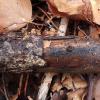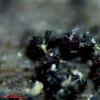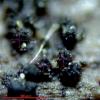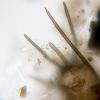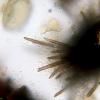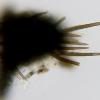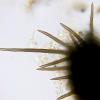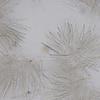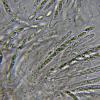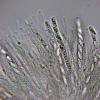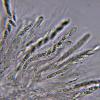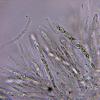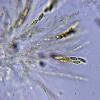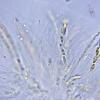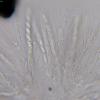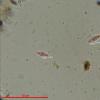
05-02-2026 15:07
Found on a fallen needle of Pinus halepensis, diam

05-02-2026 06:43
Stefan BlaserHello everybody, Any help on this one would be mu

18-08-2025 15:07
 Lothar Krieglsteiner
Lothar Krieglsteiner
.. 20.7.25, in subarctic habital. The liverwort i

02-02-2026 21:46
Margot en Geert VullingsOn a barkless poplar branch, we found hairy discs

02-02-2026 14:55
 Andgelo Mombert
Andgelo Mombert
Bonjour,Sur thalle de Lobaria pulmonaria.Conidiome

02-02-2026 14:33
 Andgelo Mombert
Andgelo Mombert
Bonjour,Sur le thalle de Peltigera praetextata, ne

31-01-2026 10:22
 Michel Hairaud
Michel Hairaud
Bonjour, Cette hypocreale parasite en nombre les

02-02-2026 09:29
 Bernard CLESSE
Bernard CLESSE
Bonjour à toutes et tous,Pour cette récolte de 2
¿Capronia?
Josep Torres,
23-12-2024 14:37
Some tiny globose black ascomata found on December 1st in a beech forest, although the trunk is most likely Pinus sylvestris, as they appeared next to some specimens of Hyalocypha aureliella, a very common ascomycete on this type of wood.
Ascomata with a size of only (123.9) 129.8 - 155.1 (171.2) × (115.5) 125.5 - 149.9 (152.8) µm. not counting the hairs.
Brown hairs with thick walls, with one to four septa, measuring (25.4) 27.6 - 66.2 (90.9) µm., with a width at their base of (3.1) 3.2 - 4.6 (4.9) µm.
Asci are octosporic, inamyloid in Melzer form, measuring (63.5) 70.3 - 80.2 (84.2) × 4.9 - 6.9 (7.2) µm.
Few free spores observed, these hyaline spores, with a septum, with a constriction in it and with measurements of (9.5) 9.7 - 10.5 (11) × (3.3) 3.33 - 3.6 (4) µm., measurements practically identical to the mature spores inside the ascus, these spores inside the ascus with measurements of:
(9.1) 9.3 - 10.4 (10.8) × (3.2) 3.3 - 3.8 (3.9) µm
Q = (2.4) 2.6 - 3 (3.2) ; N = 32
Me = 9.8 × 3.6 µm ; Qe = 2.8
Given its characteristics, I am thinking of Capronia, although I cannot find any of the Keys to the genus that I have available that fit my proposal, and since I have seen something in some images that could correspond to paraphysis, I have even begun to doubt the genus.
Any suggestion from you will be well received.
Thank you very much in advance.
Greetings and Merry Christmas.
Josep Torres,
25-12-2024 12:13
Re : ¿Capronia?
Hello.
Any suggestions.
Since the Keys to Capronia are not leading me anywhere, could it be possible that with this spore morphology and its measurements it could be Helminthosphaeria?
Best regards and Merry Christmas.
Any suggestions.
Since the Keys to Capronia are not leading me anywhere, could it be possible that with this spore morphology and its measurements it could be Helminthosphaeria?
Best regards and Merry Christmas.
Thomas Læssøe,
29-12-2024 13:03
Re : ¿Capronia?
Capronia species have bitunicatae asci, so this genus is excluded since the asci in your fungus are unitunicate with a small refractive annulus. Helminthosphaeriaceae is a possibility as you imply.
happy new year
happy new year
Josep Torres,
30-12-2024 08:20
Re : ¿Capronia?
Thanks Thomas.
In any case, I'm already saving it in my files as Helminthosphaeria sp.
Happy New Year.
In any case, I'm already saving it in my files as Helminthosphaeria sp.
Happy New Year.

